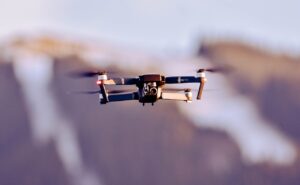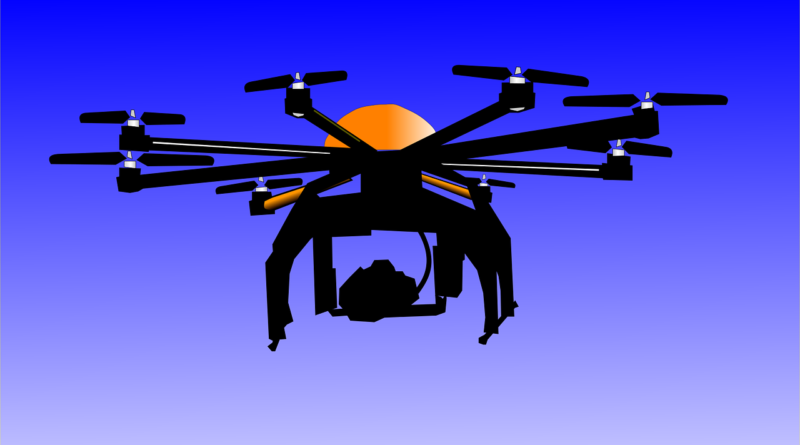What Counts As Recreational Drone Flying
It’s All About Intent and Purpose
At its core, the difference between recreational and commercial drone operations comes down to intent and purpose. Are you flying your drone purely for fun and personal enjoyment? Or are you using it to make money or further business interests in some way? That’s the key distinction. Recreational drone flying means you’re operating your unmanned aerial vehicle (UAV) or remote control model aircraft solely as a hobby, with no commercial motivations whatsoever. You’re not getting paid, not making money from videos or photos, and not using the drone to provide services to anyone else. Some clear-cut examples of recreational drone flying include:
- Taking aerial videos and photos of your neighborhood, local parks, or on vacation just for fun
- Racing drones with friends as a competitive hobby
- Flying drones to practice aerial photography/videography skills with no intent to sell the footage
- Using a drone to scout fishing spots or hunting grounds purely for your own recreational purposes
On the flip side, any drone operations that involve making money or supporting a business venture are considered commercial, not recreational. This includes obvious cases like using drones for real estate photography, inspecting roofs or infrastructure for a fee, or monitoring construction sites. But it can also apply to more subtle situations like:
- Selling aerial photos/videos you captured with your drone
- Using a drone to advertise/promote your business or professional services
- Hiring out your drone piloting services for any kind of paid work
- Flying a drone as part of your job duties for a company
The line can get a bit blurry in certain edge cases, which we’ll explore in a bit. But in general, if there’s any profit motive or commercial interest behind your drone operations, it’s most likely no longer considered purely “recreational” .
Why the Distinction Matters
You might be wondering why it’s such a big deal whether your drone flying is recreational or commercial. The reason is that commercial drone pilots in the U.S. (and most other countries) are subject to much stricter rules and regulations than recreational flyers.In the United States, the Federal Aviation Administration (FAA) requires commercial drone pilots to obtain a remote pilot certificate by passing an aeronautical knowledge test covering topics like airspace rules, weather effects on drones, and operating requirements. Commercial pilots also have to register their drones, follow strict operational rules, and meet other regulatory requirements.Recreational drone pilots, on the other hand, can fly under more relaxed rules as long as they register drones weighing over 0.55 lbs, follow safety guidelines like keeping the drone within visual line of sight, and steer clear of restricted airspace like airports. No pilot certification is required for recreational use.The penalties for violating the commercial drone regulations can be quite severe, including potential fines and criminal charges. So it’s crucial for anyone flying drones to understand whether their operations fall under the recreational or commercial category.
Some Tricky Gray Areas
While the core distinction is straightforward, there are some situations where it can get a bit murky in terms of whether drone flying counts as recreational or commercial. Here are a few examples of gray areas: Donating Aerial Media: Let’s say you capture some amazing drone footage of your city and decide to donate the video to your local tourism board to use in promotional materials. Since you’re not being paid, is that still recreational? The FAA would likely view that as a commercial operation since the footage is being used for a business purpose, even if you’re not directly compensated. Prize Competitions: What if you enter an aerial photography contest and win a cash prize? Technically, the initial intent was recreational when you captured the photos/videos. But once you start profiting from that media, even retroactively, it could be viewed as a commercial operation. Crowdfunding Donations: Some drone pilots have tried funding their hobby by soliciting donations or crowdfunding from viewers of their aerial videos. The FAA has warned that this could be considered a commercial activity depending on the circumstances. Incidental Business Benefits: Let’s say you’re a real estate agent who flies a drone for fun to capture footage of your city’s skyline. If you then use some of those videos or photos to promote your real estate business, even incidentally, that could potentially cross the line into commercial operations. In these ambiguous cases, the FAA recommends erring on the side of caution and assuming the stricter commercial rules apply unless you’re absolutely certain the activity qualifies as recreational. When in doubt, get certified as a commercial drone pilot.
Finding the Right Balance
The explosion of drone technology and popularity has created some understandable growing pains in terms of regulating their use. On one hand, we want to preserve accessibility for recreational users to enjoy this amazing hobby. But we also need common sense rules to ensure drones don’t create hazards or violate privacy and security. Most drone laws and regulations are aimed at commercial operators, with relatively minimal restrictions on recreational flyers. As long as you’re truly just flying for fun with no business motivations, you can generally operate under the recreational rules. But it’s wise to stay up-to-date on the latest regulations from the FAA and local authorities. Drone laws are constantly evolving as the technology advances. What was once considered recreational could potentially shift into a commercial category in the future. The key for drone hobbyists is understanding the difference, following the appropriate rules for how you’re operating, and using good judgment. As long as we’re responsible about keeping drones as a fun hobby activity, we can continue enjoying this awesome pastime for years to come. So keep on flying, drone fans! Just be mindful of whether your operations are truly recreational or if you might be venturing into commercial territory that requires more stringent rules and certification. A little awareness goes a long way toward keeping our skies safe and our drones in the air.

